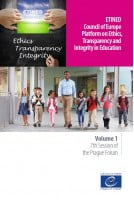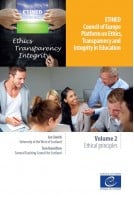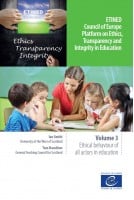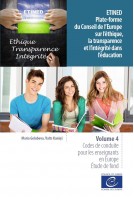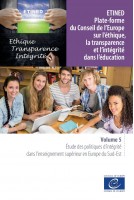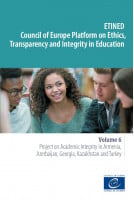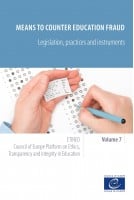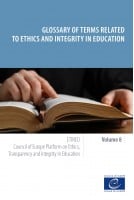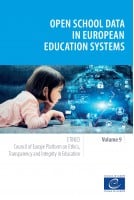How do students perceive and respond to education fraud?
This report presents students’ perceptions and awareness on education fraud relative to six aspects: knowledge, experience, protection, prevention, technology and community. The study analyses findings from a survey targeted at higher education students from the states parties to the European Cultural Convention represented at the Steering Committee for Education of the Council of Europe. It examines their understanding of education fraud, experiences with it and views on institutional responses and preventive measures.
Findings indicate that, while students recognise the negative impact of education fraud on quality and equity, their awareness remains limited beyond common forms such as plagiarism. Many lack knowledge of reporting mechanisms and do not perceive themselves as adequately protected by their institutions. Prevention efforts appear insufficient, with over half of respondents having received no formal training on academic integrity.
Technology is seen as both a challenge and a potential tool for fraud prevention, with divided opinions on the ethical implications of artificial intelligence in education. While students identify universities, teaching staff and governments as key actors in addressing education fraud, they also acknowledge their own role in upholding academic integrity.
The report highlights the need for stronger institutional frameworks, enhanced awareness initiatives and policy measures to foster a culture of ethics, transparency and accountability in education.
FOREWORD
EXECUTIVE SUMMARY
PART 1 – CONTEXT AND OBJECTIVES OF THE STUDY
PART 2 – DATA COLLECTION AND ANALYSIS
PART 3 – OUTCOMES OF THE SURVEY
PART 4 – FINAL CONSIDERATIONS
APPENDIX 1 – QUESTIONNAIRE
APPENDIX 2 – METHODOLOGY ANNOTATION REGARDING DATA HARMONISATION
APPENDIX 3 – PARTICIPATING COUNTRIES



